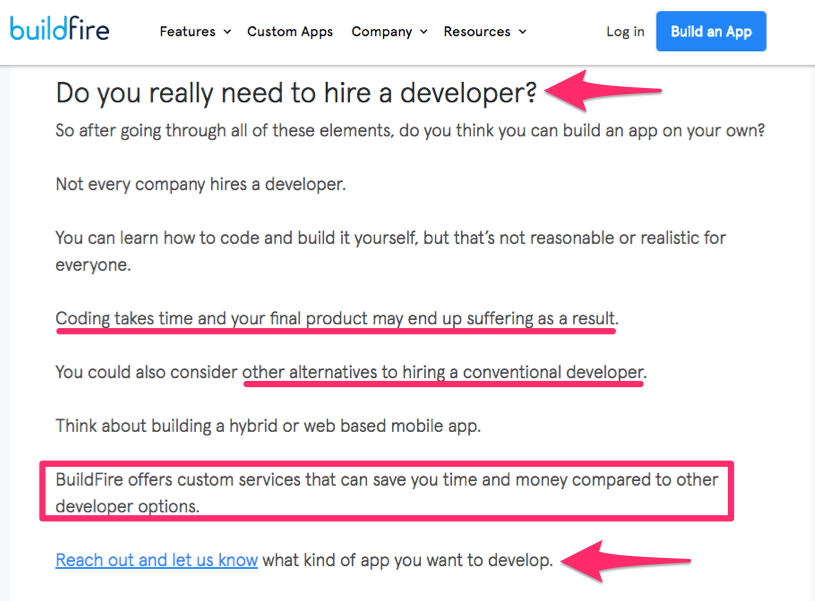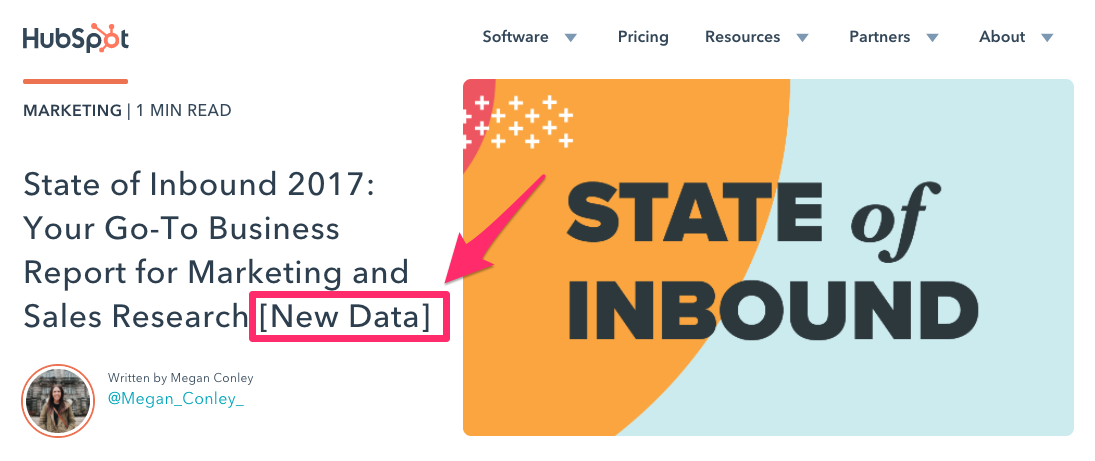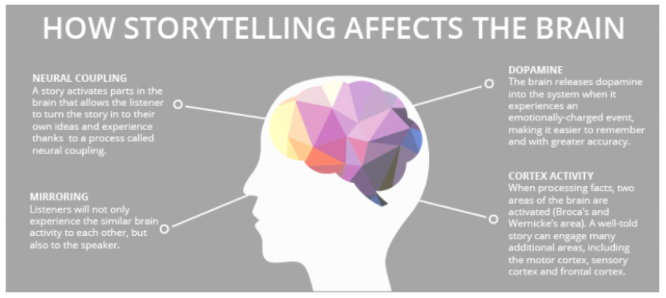Anyone can produce content.
But content without a purpose is not effective. You need to consider the goals of your content marketing strategy. Ask yourself what you want your audience to do when they consume your content.
Whatever that answer is, your content needs to be engaging if you want to accomplish those goals. What is engaging content?
Well, it all depends on whom you ask and how it’s measured. For me, engaging content is all about getting results, such as:
- increase in traffic
- clicks
- opt-ins
- conversions
- sales
- comments
- likes
- mentions
Any of these metrics can be used to measure engagement.
Here’s something else to keep in mind. If your content doesn’t engage your readers, they simply won’t consume and retain the information. This will end up being a big waste of your time, money, and resources.
Don’t get me wrong. I’m not saying it’s easy to come up with great content.
If you’re currently putting out posts, images, and videos that are average at best, it’ll take some more effort on your part if you want to see some results.
But it’s worth it. If you put in the extra effort to focus on improving your content marketing strategy, it will ultimately help your business make more money.
Not sure where to start? That’s what I’m here for.
I’ve come up with this resource of the top 9 tips for producing content that engages your audience.
1. Be original
Today, it’s tough to produce content that’s 100% unique.
There is probably someone else out there who is talking about the same thing, took a similar photo, or conducted similar research. That’s okay.
The idea is to produce content that stands out. With so much competition, it’s no surprise that producing engaging content is the biggest challenge for marketers:

How can you overcome this? Be original.
Yes, you can still blog about a topic that’s been previously discussed. But don’t write it the same way everyone else has. Add your unique voice and spin to the subject.
Share personal experiences – nobody else had them.
Often, marketers try to come up with the most cost-effective solution to content creation. They pay some writer with no experience to write blog posts at $20 per article.
Well, like anything else, you get what you pay for. You can’t expect this type of content to be original and engaging.
Write your content so that it’s unmistakably your own. Put your personality into everything you produce. In doing so, you’ll end up growing a loyal group of followers and readers.
Again, this takes more time and effort, but it’ll be easier for you to increase your engagement metrics this way.
2. Produce actionable content
I just talked about the goals of your marketing campaigns.
What do you want? If you don’t know the purpose of your content, the consumer won’t have any idea either.
You need to know what you want someone to do after they consume a piece of your content.
For example, let’s say you’re promoting a new product on your website. You decide to blog about it. This is a great idea, but that alone won’t get people to buy the product.
Your post needs to highlight the features and benefits, how it can be used, how you have used it, and how it can improve the lives of the consumers.
This primes the reader to make the purchase. Let’s look at an example of that.
This blog post from BuildFire talks about how to hire a developer to build your mobile app. But as a custom app building platform, the team wants its audience to use its software instead:

This section of the blog post starts by questioning the need to hire a developer at all. It discusses some potential issues with that method and offers an alternative solution.
Then the company pitches its own service. The pitch is followed by a hyperlink that brings the reader to a landing page for sign-ups.
This is arguably the most important part of this post. Why?
You can’t assume your audience will read something, navigate to your ecommerce site, search for a product, then click on it and add it to their carts.
That’s way too many steps. They should be able to complete this action with one click from within the post, just like in the example above.
If your readers can buy something with just a click or two, they will be more likely to complete the action. Do you want readers to sign up for your email list? Give them the option to click to join.
Finding these buttons on your site shouldn’t be a scavenger hunt. The buttons need to be obvious so that your site visitors can complete the desired action.
3. Publish accurate information
If you’ve been reading my blogs for a while, you know how much I love to include statistics and research within my content.
I recommend you do the same.
But you need to be careful of the information you publish. Basically, anyone can put anything on the Internet today. It’s important that you recognize the quality and accuracy of the websites you’re sourcing.
You may come across a relevant statistic, but if it’s on some no-name blog and doesn’t include a data source, you can’t know for sure whether the information is accurate.
That’s why it’s best to source your information from authority sites only. In addition to making sure the source is reputable, make sure it’s recent.
Information changes at a rapid rate.
A statistic or study from ten years ago may not be relevant today. But if your content provides up to date and accurate info, people will be more inclined to engage with it.
Here’s another tip to keep in mind: don’t let your old content go to waste. Just because you published something in 2012 doesn’t mean you can’t refresh it with 2018 information.
Look at how HubSpot uses this strategy to keep its content as up to date as possible:

First, they changed the title. This lets their readers know the post has been updated with new data.
But that’s not all it does. HubSpot even tells you the exact date when the team updated the post.

It’s an effective strategy.
This shows everyone the website strives to publish accurate information, which readers find more engaging.
If you really want to wow your audience, you could conduct research yourself, producing your own study. This will help you stay original, which I discussed above.
Yes, this will be more difficult and time-consuming. But now you know for sure the results are accurate and 100% unique.
Even if someone else conducted a similar study, the results won’t be exactly the same, and yours will be more up to date.
4. Tell a story
While data is important, it’s easier for people to relate to stories than to naked facts.
That’s why we read books, watch movies, binge-watch television shows, and keep up with reality and celebrity news. We want to know what comes next in the story.
You can learn how to increase sales by mastering the art of storytelling.
Telling a story will help you connect with your audience. It can also improve your credibility on a subject.
For example, let’s say you’re writing a fitness blog. If you tell a story that happened during your personal certification training, your audience will realize you’re qualified and knowledgeable on the topic.
They are more likely to read what you have to say as opposed to reading content produced by someone who has never worked out a day in their life.
You want to share stories that stimulate an emotional response from the audience:

The graphic above explains how our brains react when we have an emotional connection to a story.
Speak in a way that’s relatable to your audience. Try to evoke powerful emotions such as joy, fear, or sadness.
Just make sure your story advances your goal and encourages the reader to complete the action you want them to take.
5. Make your audience think
Being original is one thing. But being thought-provoking is another. It’s an art.
The idea behind thought-provoking content is that the reader can relate to what you’re saying. You don’t always need to talk about a concept in black and white terms.
Let the readers’ imaginations run wild in that grey area.
Ask questions with no definitive answers. Paint a picture with some abstract scenarios.
But make it relevant to current events, pop culture, and our daily lives. This will keep your audience hooked and help them engage with your content.
This type of strategy can also help stimulate discussions in the comments section of your content. As a result, people will keep coming back to your website to check in on the discussion.
Ultimately, this is great news for you in terms of your traffic and engagement metrics. Each visit increases the chances of a conversion.
6. Use visuals
I know I mostly talked about written content so far.
But your overall content marketing strategy is much bigger than that. Pictures and videos need to be incorporated into this strategy.
Take original photos. It’s easy to take and edit photos without hiring a professional.
Look at how visual elements are being incorporated into blog posts over the past four years:

That’s because marketers recognize how much of an impact visual elements have on their successes.
You can also enhance your content by building infographics. As I said earlier, if you conduct your own research, you will have original content.
Infographics take this concept to the next level. Since people remember images more than text, they will be more likely to retain information if it’s in the form of a picture or graph.
Produce videos. The possibilities with video content are nearly endless. Here are a few of my favorite suggestions:
- “how-to” videos
- product demonstrations
- entertainment
- discussions
- interviews
Add videos to your website, posts, email newsletters, and social media channels.
7. Master your headlines
Before your content can be consumed, it needs to be clicked on.
That’s why you need to focus your efforts on creating clickable headlines. Whether it’s on your website, social media channels, or organic search results pages, your headline will be the first thing people see.
If you’ve got boring headlines, people have no reason to click.
Just don’t give it all away with your headline. For example, if your headline says something like “Men eat more than women,” nobody will have a reason to read the article.
But if it intrigues them with a question which sex eats the most, it will pique the readers’ interest, and you’ll get more clicks.
Here’s a look at some of the top performing headlines by engagement metrics on Facebook:

Use this as a reference when you’re crafting your own headlines.
8. Hook readers with your intro
Okay, so you’ve got some people who clicked on your headline. That’s great news.
However, this doesn’t mean they’ll read through all your content. In fact, research shows that 55% of your audience spends only up to 15 seconds reading your articles.
In short, they’re not actually reading it. They’re just skimming.
That’s why you need to learn how to write blog post introductions that make the rest of your post irresistible.
If you can hook the readers with your opening lines, they will be more likely to remain interested throughout the post.
This works in conjunction with your headline and CTA. All these elements should be working together toward your goal.
9. Mix up your content
Posts shouldn’t be all the same. That’s just boring.
Nobody wants to read a case study every day. Keep your audience on their toes to make sure they get excited with your content.
If one day you tell a story, the next day you talk about research. Your following post could be centered around a video.
Next, you could promote a product. Blog about recent events. Add a humorous or compelling spin to it.
Whatever you do, don’t let your content go stale.
Conclusion
Producing engaging content isn’t easy. That’s why businesses agree that it’s the most challenging aspect of their marketing campaigns.
But with some extra time and effort, you can figure out ways to create engaging content.
It’s all about being original and separating yourself from the crowd. Produce content that’s actionable.
All of your information needs to be accurate and up to date.
Tell stories to capture the attention of your readers. Make them think outside the box. Use visual elements to enhance your content.
Focus on getting clicks with your headlines and then keep your readers interested with the opening lines and introduction.
Don’t use only one of these strategies. Mix up your content to keep things interesting.
If you follow the 9 tips I’ve listed above, you’ll find it much easier to create highly engaging content.
What type of content are you producing to increase your engagement metrics?